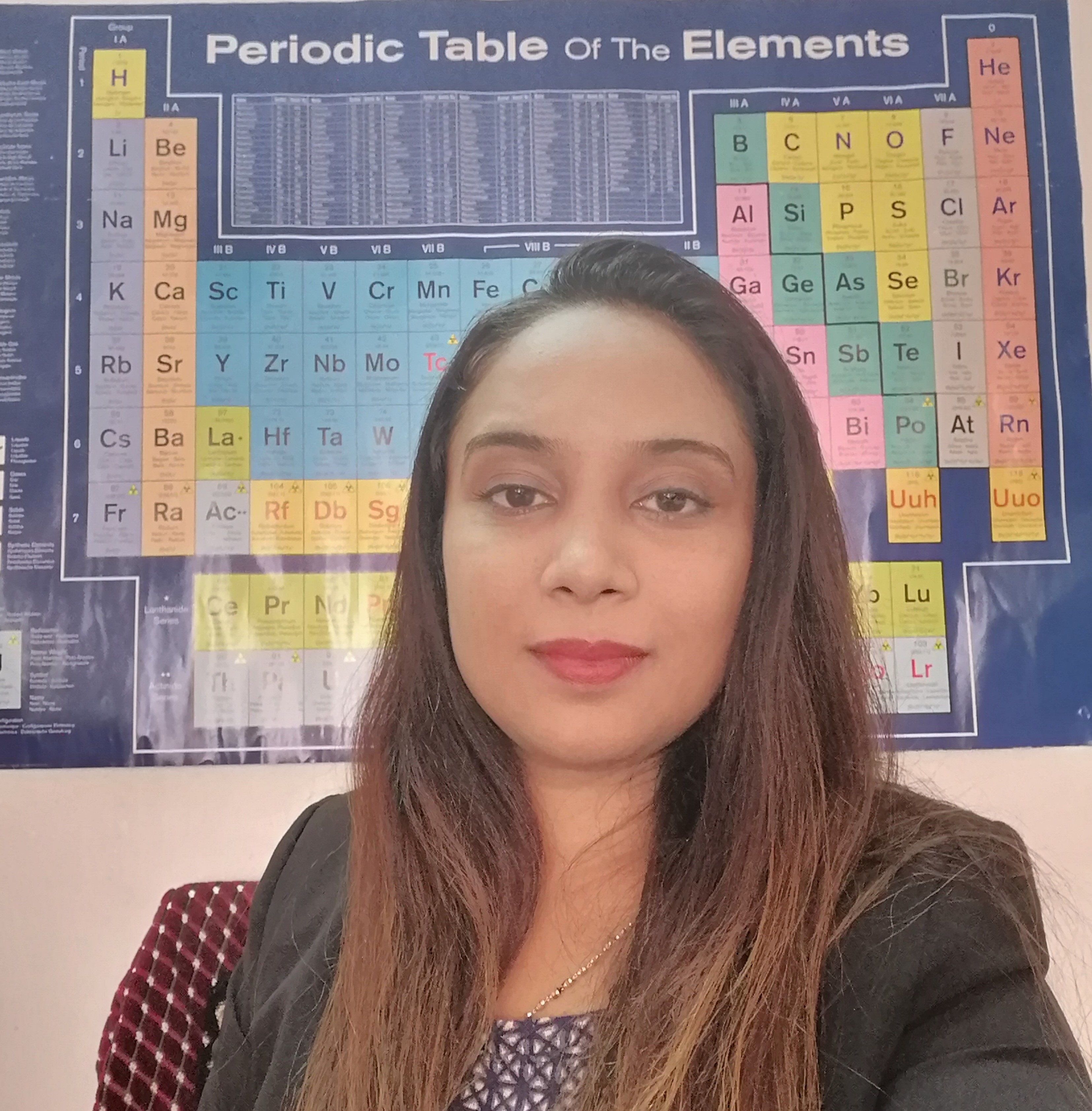
Chemistry Teacher at Adventist College (12 years in the teaching profession)
Professional Qualifications:
1. Educator’s license (2012)
2. Certificate in ‘Emerging trends and technologies in the virtual K-12 classroom’. (2013)
3. Post-graduate certificate in education (2017): Pass with distinction.
4. Masters in Education: will be completed in January 2020
Research title: Science teachers’ conceptualization and enactment of the social relevance of the lower secondary science curriculum in Mauritius.
Additional qualifications and achievements:
1. Mentor for the Pan-African Youth Leadership Programme (2014)
2. Organiser of the Youth leadership Program in Mauritius (2015)
3. National winner Famelab Mauritius and international Famelab finalist (2017)
4. Presentation at the International Union of Pure and Applied Chemistry conference (2018)
5. Supervisor for national science competitions (2011-present)
6. Launching and monitoring of science club at school (2011-present)
7. Production of videos for student support programme (2018-present)
With the explosion of knowledge spurred by this era of extensive communication, learners need to develop the skills to navigate through the huge amount of information that they are being exposed to. If not properly guided and essential skills such as critical thinking are not developed at an early stage, learners may become overwhelmed and confused as to the very purpose of education which might seem irrelevant and incongruent to them. It is hereby proposed that learning can be made more meaningful to learners if concepts are taught through an integrated and socially-relevant approach. Meaningful learning herewith refers to knowledge and skills that are perceived as being useful to the learners and which they can incorporate into their prior experiences and understanding of the world [1, 2]. Taking into consideration that real-life issues and challenges do not present themselves to us in fragmented ways, it is essential that learners develop the skills to tackle issues by drawing from various branches of knowledge and competencies in a synergistic way. The growing complexity of the workplace and societal issues which require urgent attention, such as the energy crisis and sustainable development, need individuals to be creative, innovative and proactive. This is echoed in various policy documents that recommend the development of 21st century skills for quality education [3, 4]. However, we can hardly expect to achieve this if we continue to teach in an incoherent and fragmented manner. Through curriculum integration, we are able to present a more comprehensive and realistic picture of concepts to learners. Real-life scenarios, drawn from the learners’ lived experiences, are emulated within the classroom to prepare students to reflect upon real issues, hence making their learning socially relevant. Integrated problem-solving skills are developed, tapping into various types of competencies such as communication, analysis, reflection on consequences, processing and presentation of data. These are skills that cut across various disciplines and can therefore be developed if teachers work collaboratively. An example of this process that has been adopted by the author is teaching about concepts such as sustainable development, carbon-footprint and air pollution through a collaborative approach whereby the same concepts are simultaneously taken up by teachers of science, English language, Art, social studies and entrepreneurship education. Such an approach allows students to have multiple perspectives of a particular concept, allowing the latter to draw deeper meaning from their learning experiences. This approach not only consolidates understanding but also promotes the development of social skills which are harder to achieve through traditional approaches to teaching and learning [5]. Similar results have been observed by other teachers [6, 7], thus consolidating the author’s belief that a greater effort ought to be made towards curriculum integration and social relevance for meaningful learning to take place.
References:
1. A.B. Vallorie, Journal of Education and Human Development, 3. 2014, 199.
2. R. Gunstone (ed.), Encyclopedia of Science Education, 2015, 625.
3. MoE, National Curriculum Framework NYBS Grades 7, 8 &9, 2015, 17.
4. UNESCO, Moving forward the 2030 Agenda for Sustainable Development, 2015, 17.
5. S. M. Drake and J.Reid, Asia Pacific Journal of Educational Research, 1, 2018, 37.
6. L. Rennie, R. Sheffield, G. Venville. Conference Paper, AARE Annual, 2007.
7. A. Alghamdi, Journal of Mathematics Science and Technology Education, 13, 2017, 6091.
Sharing my own experience of effective strategies and approaches to teaching with other educators in view of expanding my ideas through discussions and interactions.
Learning from the experience of educators working in different contexts about the most effective teaching practices.
Engaging in discussions about common challenges faced by educators and identifying the best approaches to overcome those challenges.